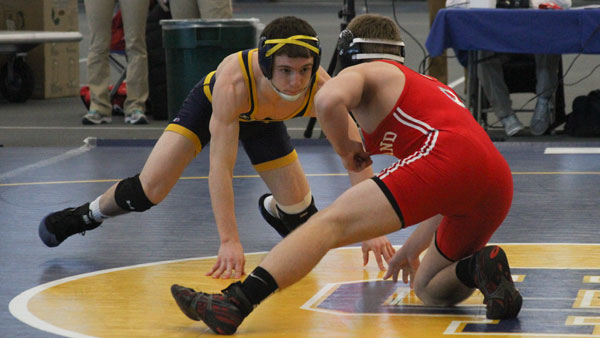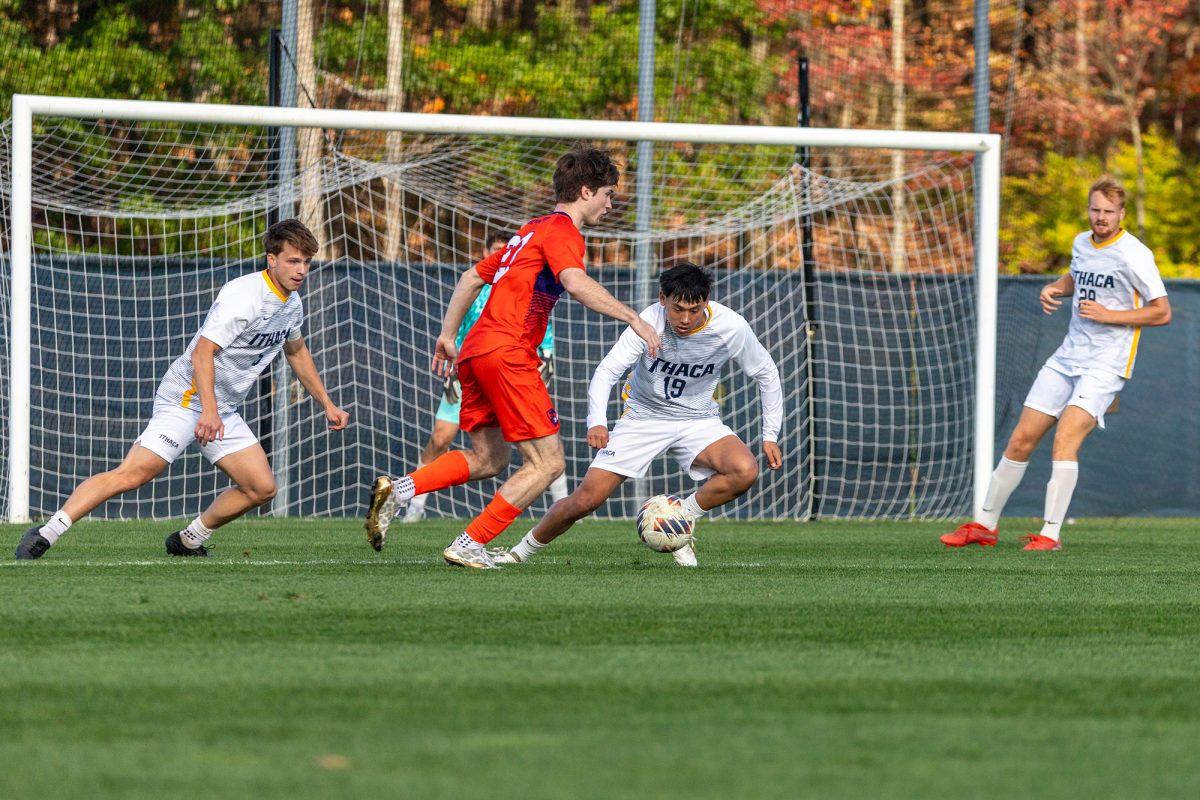Most sports have a distinction between being individual- or team-oriented. With wrestling, however, the debate continues.
Since its creation, wrestling has been a sport of not just physical caliber, but also mentality. Collegiate wrestling began in 1903 when a match took place between Yale University and Columbia University. Wrestlers declared their weight in 10 classes and began to compete in colleges across the United States. The sport evolved into a competition requiring physical skill and heart.
The Bombers wrestling team exemplifies a squad that competes with determination and athleticism. With three NCAA Division III Wrestling Championships, 11 individual national champions and 67 All-American wrestlers, the Blue and Gold have had a chain of team and individual successes throughout the program’s history.
This season, the Bombers wrestling program is no exception, with a 7–3 record, including wins against nationally ranked teams. They are preparing to send the maximum number of 10 wrestlers to the NCAA Division III Championships on March 14–15 in Cedar Rapids, Iowa. Teams can be national champions, but becoming an individual champion is held in higher regard.
Senior Cris Ramirez said he has had his fair share of tough matches in the 285-pound weight class, but he attributes his victory against a nationally ranked wrestler last season to the encouragement of former teammate Ricardo Gomez.
“We’re constantly telling each other that we can win,” Ramirez said. “One of the things that we talk about is believing. We are always telling each other that we know that we can do it. That means a lot, knowing that you can win because other people are telling you somehow makes some crazy things happen.”
The constant battle of deciding if wrestling is an individual or team sport is, for the time being, halted by the Bombers themselves. Sophomore Dan Glinko, who wrestles in the 184-pound weight class, said wrestling can’t be defined as either.
“It’s really hard to differentiate because it’s ultimately individual, you’re out there by yourself, but if you don’t have your team, you can’t prepare,” Glinko said. “They’re the ones who are going to make you good. They push you to be as successful once you’re out on the mat.”
Glinko said without a team that encourages its wrestlers, individuals can lose their confidence when alone on the mat.
“When everyone is up in arms cheering for you, it’s great,” Glinko said. “Everyone’s really pushing you to win. It’s really inspiring.”
Working together in practice, every team member helps to make one another better. Freshman Liam Korbul said the team’s bond gives each wrestler added motivation.
“Everybody’s in this together,” he said. “I never have to lose weight alone. There’s always someone, even if they don’t have to lose weight.”
Korbul said he credits his teammates for helping one another throughout the season to get to a national championship result. He said his leadership and experience gives him motivation to improve.
“I just try to do what Dom Giacolone does,” Korbul said. “When he wrestles, he just never stops. I want to be like that. You can see the look on people’s faces when he wrestles them. They just want to quit. They look so frustrated, and they don’t know what to do because he just grinds them down.”
Junior Kevin Collins said he has noticed a positive change in his teammates because of the squad’s focus on team goals, particularly when preparing for meets.
“When you hear your teammates cheering you on when the whistle blows in between periods, it might pick you up and get you going against that tougher guy,” Collins said.














